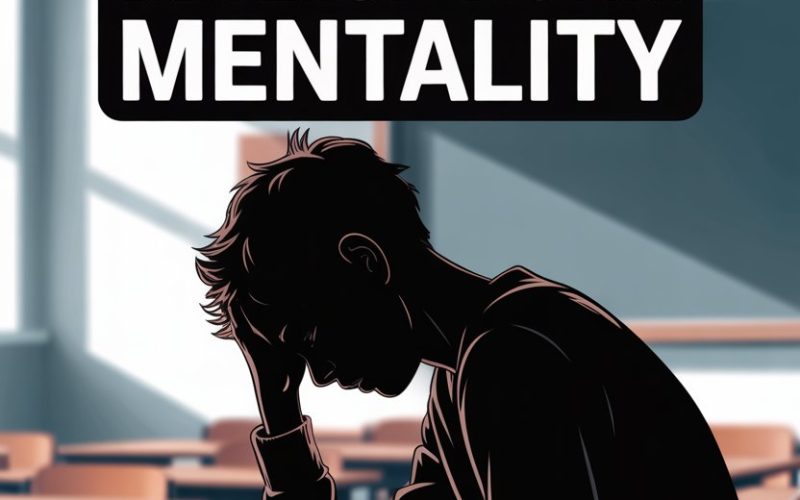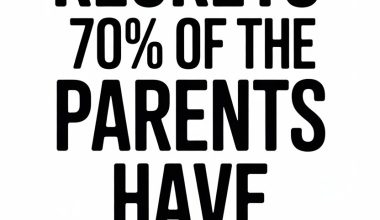Ever met a child who seems stuck in “It’s not fair!” mode? The one who, when given broccoli, acts as though they’ve been handed a fate worse than naptime?
While it’s easy to chalk it up to drama, for some kids, seeing themselves as life’s perpetual underdog can become a habit. Not every “woe is me” is just a phase.
The roots of victim mentality can run deeper than lost crayons and sibling squabbles. Here’s why some children get tangled up in this mindset—and how harried parents can help cut the knot.
1. Parental Rescue Missions on Repeat
Somewhere between “helicopter” and “snowplough” parenting, there’s a new trend: the constant rescue mission.
When children see adults swooping in to fix every problem—from forgotten lunchboxes to playground spats—they start to believe that helplessness is the ticket to attention and solutions.
Psychologist Dr. Wendy Mogel, author of The Blessing of a Skinned Knee, points out that rescuing kids too often robs them of the chance to develop resilience.
If every bump in the road gets steamrolled by mum or dad, children never get to practice bouncing back.
Tonight’s homework (you know the kind that doesn’t involve actual worksheets): Next time your child faces a challenge, resist the urge to leap in. Offer empathy, absolutely, but let them brainstorm solutions.
Failing a spelling test feels lousy, but figuring out how to study better next time? That’s gold.
2. Modeling Misery—Parents as Professional Martyrs
Kids are spectacular mimics.
If you find yourself regularly bemoaning your bad luck, unfair bosses, or how nobody ever appreciates your culinary masterpieces (fish fingers count), don’t be surprised if your child starts narrating life from the same script.
Research published in Child Development suggests that children pick up emotional coping strategies from their carers like they pick up nits—quickly, and with surprising thoroughness.
Chronic complaining or casting oneself as the family martyr can set the tone for a child’s view of the world.
Time for a bit of self-reflection. Try swapping “Why does this always happen to me?” with “This is tough, but I can handle it.” Your pint-sized parrot is listening.
3. Overpraise and the Trophy Cabinet Problem
You know the participation trophy that gathers dust on the shelf? For some kids, a steady stream of praise—regardless of effort—creates the expectation that life will always hand them gold stars, just for showing up.
When reality fails to deliver, it feels personal. Cue the “everyone’s out to get me” routine.
Child psychologist Dr. Carol Dweck’s work on growth mindset makes it clear that praising effort over outcome is key. Instead of “You’re the best at football!”, try “I saw you working hard and passing to your teammates today.”
The message: setbacks are normal, effort matters, and the world is not plotting against you.
Switch up your evening debrief. Share a story about something you struggled with, what you learned, and how you kept trying—even if you didn’t get a gold star.
4. Bullying, Exclusion, and Real-Life Knockdowns
Sometimes, kids really are treated unfairly. Repeated bullying, exclusion from the cool table, or feeling invisible in class can all feed a sense of powerlessness that’s hard to shake.
The trouble comes when real experiences of being wronged start to colour every interaction.
The National Society for the Prevention of Cruelty to Children highlights how chronic victimisation can make children hyper-alert to slight and rejection, even when none exists.
Their world turns into a minefield of perceived threats.
If your child has faced bullying or exclusion, validate their feelings before jumping to solutions. Ask open-ended questions.
Offer support—sometimes that means talking to a teacher, other times it’s helping them rehearse assertive responses. Remind them, gently, that one person’s cruelty doesn’t define their worth.
5. Attention, Control, and the Power of Helplessness
Let’s be honest, drama draws a crowd. For some children, playing the victim becomes a way to secure sympathy, extra attention, or even avoid responsibility. “I can’t do it, it’s too hard, you do it for me!”—sound familiar?
Research from the Child Mind Institute notes that children who feel overlooked or out of control sometimes turn to helplessness as a secret weapon.
If being strong and self-reliant earns little notice, but tears and tantrums bring a parent running, the choice is obvious (to a six-year-old, anyway).
Try a little reverse psychology at bedtime: lavish attention when your child takes initiative, even in tiny ways (“I saw you tried tying your own shoelaces!”).
When the victim routine cranks up, respond with calm empathy, but don’t rush to rescue. The applause fades, and with it, the need for an audience.
Lifting the Label: Helping Kids Reclaim Their Agency
Victim mentality isn’t something a child chooses; it’s a tangle of learned habits, modeled behaviour, and real-life hurts. The good news? Habits can be unlearned.
Sometimes it takes only a few tweaks—less rescuing, a little more reflection, a nudge toward trying again instead of giving up.
Children need permission to struggle, to fail, and to try again. They need to see that their grown-ups don’t have it all sorted, but keep going anyway.
Most of all, they need to know that while life isn’t always fair, they are strong enough to handle it.
The next time your child wails, “It’s so unfair!”—resist the urge to roll your eyes (at least visibly). Instead, offer a listening ear, a dollop of empathy, and maybe—just maybe—stand back while they figure out their next move.
You’ll be surprised at how quickly they can trade “Why me?” for “Watch me.”




